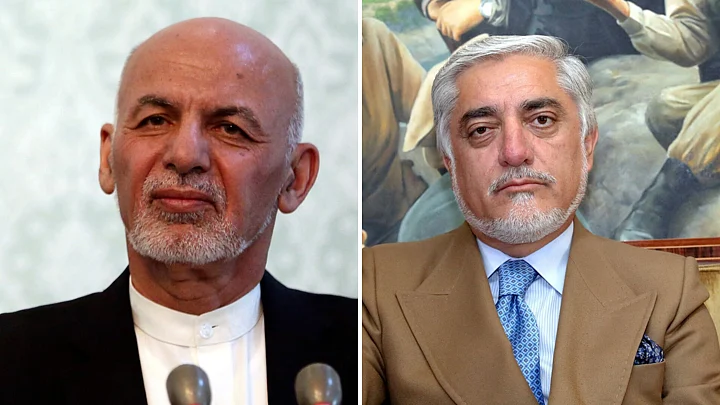Afghans headed to the polls on Saturday, 28 September, to elect a new president amid high security and Taliban threats to disrupt the elections, with the rebels warning citizens to stay home or risk being hurt.
Still at some polling stations in the capital voters lined up even before the centers opened, while in others election workers had yet to arrive by poll opening time.
The leading contenders are incumbent President Ashraf Ghani and his partner in the 5-year-old unity government, Abdullah Abdullah, who already alleges power abuse by his opponent.
Security Tightened for Polls
Fear and frustration at the relentless corruption that has characterized successive governments ranks high among the concerns of Afghanistan's 9.6 million eligible voters.
Tens of thousands of police, intelligence officials and Afghan National Army personnel have been deployed throughout the country to protect the 4,942 election centers.
Authorities said 431 polling centers will stay closed because it was impossible to guarantee their security since they were either in areas under Taliban control or where insurgents could threaten nearby villages.
Campaigning for Saturday's elections was subdued and went into high gear barely two weeks ahead of the polls as most of the 18 presidential candidates expected a deal between the United States and the Taliban to delay the vote. But on 7 September, President Donald Trump declared a deal that seemed imminent dead after violent attacks in Kabul killed 12 people, including two US-led coalition soldiers, one of whom was American.
While many of the presidential candidates withdrew from the election, none formally did so, leaving all 18 candidates on the ballot.
Elections in Afghanistan are notoriously flawed and in the last presidential polls in 2014, allegations of widespread corruption were so massive that the United States intervened to prevent violence. No winner was declared and the U.S. cobbled together the unity government in which Ghani and Abdullah shared equal power — Ghani as president and Abdullah as chief executive, a newly created position.
Constant bickering and infighting within the government frustrated attempts to bring in substantive legislation as security, which has been tenuous, continued to deteriorate, frustrating Afghans and causing many to flee as refugees.
(At The Quint, we question everything. Play an active role in shaping our journalism by becoming a member today.)
